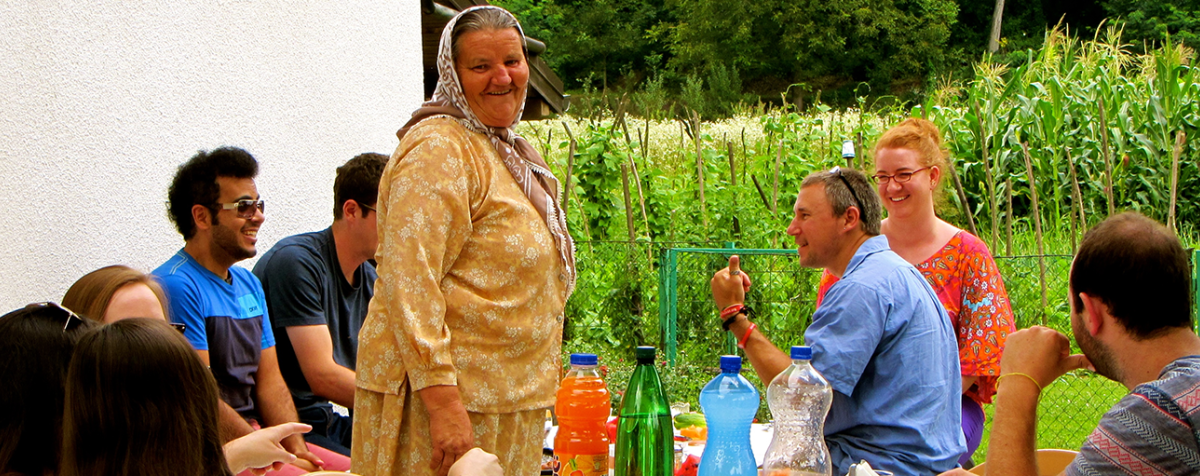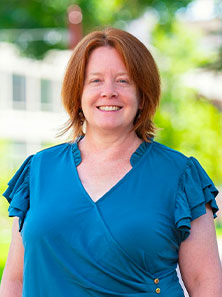International Courses and Experiences
GSSW offers the opportunity to participate in internationally focused courses and experiences that include academic work followed by an in-country experience. All international courses are 3 credits and fulfill the Values for Practice course requirement for your degree. They can also be used as an elective.
See below for details and faculty contact information to learn more about each course. Availability of courses is dependent on international security risks as well as DU’s current public health protocols and are subject to change based on university risk assessments and/or public health protocol changes.
International Course Planning
Students must be enrolled in and attend all course sessions prior to the international travel opportunity. If you will finish your degree requirements prior to your term of travel, your degree will not be finalized until after the trip is complete. In addition to the course tuition, there is a separate fee for each course. Information about course fees and other anticipated out-of-pocket expenses will be provided by the lead faculty for the course.
MSW@Denver, Western Colorado and Four Corners students: Because the courses are based in the Denver Campus program, you must apply as a Visiting Student at least 6 weeks prior to the term in which the course is held in order to request to take the course. Approval is based on seat availability in the course. Courses will have a virtual attendance option available to visiting students.
MSW@Denver students:
- If you are planning to take the travel course as your Values for Practice requirement, you will need to complete a Substitution Form to do so. Not sure which courses are Values for Practice courses? Check out your Course Planning Tool.
- If you will be in a field internship when the travel opportunity is offered, you must have time away from your internship pre-approved by your agency. Connect with your GSSW Field Liaison first.
International Opportunities
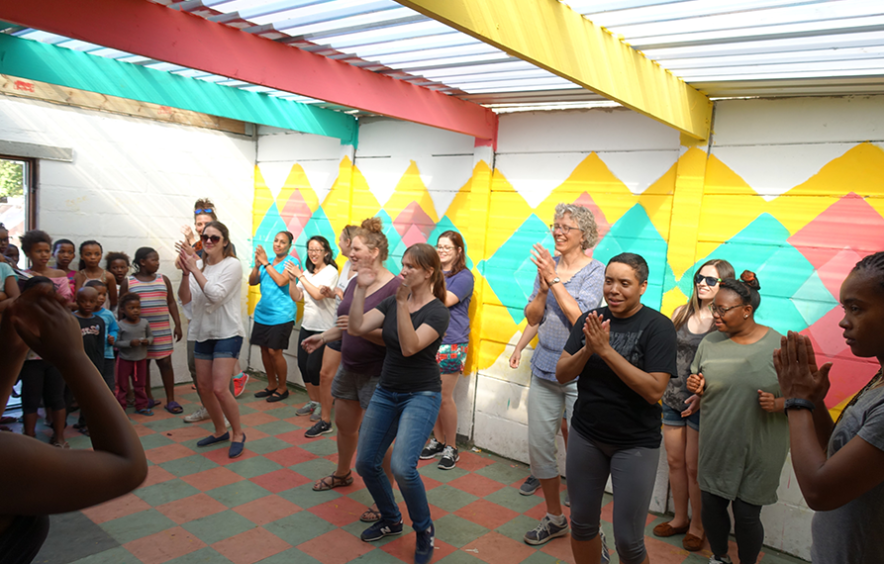
South Africa
Social Work and Social Justice in South Africa
This 3-credit course is offered in partnership with Educo Africa and takes place within the Black and Coloured townships of Cape Town, South Africa. There will also be a wilderness component with South African social workers to lay a foundation for understanding local and global issues.
- Documentary film about the course (https://www.youtube.com/watch?v=61tBPAJzbQo) (45 min) Please note that this film represents the flavor of the course, but the actual agencies involved will differ from those depicted. Of note: The film was shot in 2013, during the first course to Cape Town, so things have changed since then.
Travel Dates: November and December 2025- Specific Dates : November 24-December 7.
-
2025 Travel Details
- This course travels for 2 weeks at the end of November and returns at the beginning of December.
- Course fee: $3000-3600 (depending on # of students participating) which covers most of your expenses while in South Africa. It is charged in addition to your tuition for the 3-credit course.
- Additional costs: flight ($2,000 or less), Uber travel to and from Cape Town airport (if on a different flight than the instructors), about 10 meals ($5-$12 per meal), day off excursions, souvenirs, and the cost of tuition for the course.
- Internship: You must verify with your internship supervisor to ensure approval of being gone during the duration of the course in November and December.
Program includes
- Four days/three nights in the wilderness backpacking with South African social workers
- Two nights home stay and tour in the Langa township and day trips to other townships to visit social work agencies
- Four days job shadowing with South African social workers who participated in the wilderness trip
- Group excursions to Robben Island and Cape Point
- Two days off for your own excursions
- Group reflection time to process your experiences
-
Course Expectations
- SOWK 4763: Social Work and Social Justice in South Africa
- Coursework in fall quarter
- Credits: One course credit is assigned to Fall Quarter 2025 and two course credits are assigned to the Winter Interterm 2025.
- Course can fulfill the Values Requirement for your degree.
- 3 Required Virtual Predeparture Class Dates: Days and Times- TBD
Interested MSW@Denver, Westco and 4 Corners students will also need to complete a Visiting Student Application form.
Registration: Email South Africa Faculty Coordinator, Emily.Saltzman@du.edu with your interest in the course. Interested students will be asked to complete a short application prior to registration. If there are more students interested than there are spots available, a lottery will be conducted to choose the students. Once confirmed, you will be manually registered for the course by the GSSW Registrar.
- Attend one of the following required listening Sessions to take the course at https://udenver.zoom.us/j/3038712566
- April 7th - 6-7pm MDT
- April 9th - 11-12pm MDT
- May 19th - 6-7pm MDT
- May 21st - 11-12 pm MDT
- SOWK 4763: Social Work and Social Justice in South Africa
-
Funding Resources
- The Lauren Project
- GoFundMe
- Additional financial aid loans: You may increase your financial aid budget by the amount of the course fee and your airline ticket. This may or may not give you access to additional Federal loans or a Grad Plus loan. Contact the Financial Aid office with questions.
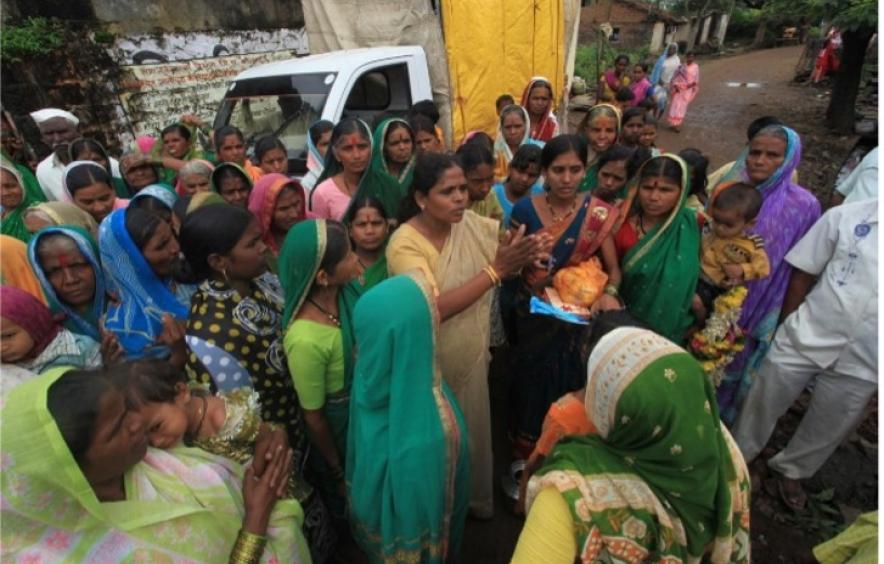
India
SOWK 4990: Women’s and Children’s Rights in India
Fall and Winter Interterm 2025
This 3-credit course is offered in partnership with Avani and takes place within Kolhapur, India. Avani’s focus is to identify human rights violations, analyze existing laws, and advocate for individuals and communities in need. After identifying these issues, Avani develops targeted programs to provide support and solutions. The ultimate goal is to transition these programs to community-led leadership, empowering local people to manage and sustain these initiatives themselves.
You will learn from human rights activist, Anuradha Bhosale, about how she is a changemaker for women’s rights, waste management and pollution issues, adolescent development, child labor issues and more.
Listen to the Informational Session to learn more: India Course 2025 info session.mp4
Review Program Itinerary Slides: Avani Student Program Brochure
In-Country Course Dates: November 24 - December 8
Travel Dates: approximately November 22 – December 9
Pre-Departure class sessions: Three virtual classes Tuesday September 16, October 7 and November 4 from 6:00 – 8:30pm MT
-
2025 In-Country Course Details
This course travels for 2 weeks at the end of November and returns at the beginning of December.
Course fee: $1700 + (depending on # of students participating) which covers most of your expenses while in India. It is charged in addition to your tuition for the 3-credit course.
Additional costs: flight ($1,500 or less, day off excursions, food during air travel, souvenirs, and the cost of tuition for the course.
Internship: You must verify with your internship supervisor to ensure approval of being gone during the duration of the course in November and December.
Program includes:
- Hotel stay in Mumbai for first night and air transportation to Kolhapur and return same
- Lodging and food at Avani Children’s Home
- Program visits throughout Kolhapur – primary schools, child labor rescue program, rural villages, organic farm, waste picking program, community health programs, MSW program at local University
- Two days off for your choice of experience – cooking lessons, henna hand painting, sightseeing, shopping, home stay, sustainable construction and more
- Group reflection time to process your experiences
-
Course Details
Coursework in fall quarter followed by travel after the end of the quarter
Credits: One course credit is assigned to Fall Quarter 2025 and two course credits are assigned to the Winter Interterm 2025.
Course will fulfill 3 credits toward the Elective Requirement for your degree.
3 Required Virtual Pre-departure Class Dates: Days and Times- TBD
Interested MSW@Denver, Westco and 4 Corners students will also need to complete a Visiting Student Application form.
-
Funding Resources
Additional financial aid loans: You may increase your financial aid budget by the amount of the course fee and your airline ticket. This may or may not give you access to additional Federal loans or a Grad Plus loan. Contact the Financial Aid office with questions.
-
Registration
Email India Faculty, karen.bensen@du.edu nikki.allen@du.ed with your interest in the course. If there are more interested students than there are spots available, a lottery will be conducted to choose the students. Once confirmed, you will be manually registered for the course by the GSSW Registrar.
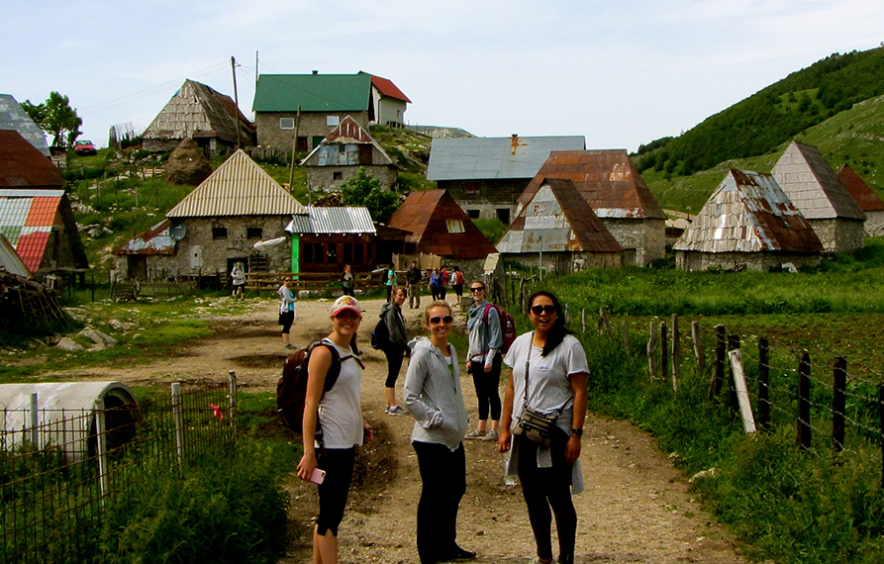
Bosnia
PLEASE NOTE: The Bosnia in Transition course is on hold at this time and will not be offered.
Bosnia in Transition — The Social Work Response
Learn firsthand about the social work response in post-war, post-genocide Bosnia through a social justice lens. The social, cultural, historical, political, economic, religious, legal and ethnic characteristics of the former Yugoslavia are explored as context for studying the genocide that occurred in the 1990s against Bosnian Muslims.
In addition to the learning that will occur in the classroom at GSSW, students travel to Bosnia for two weeks in June/July. You'll be exposed to the local, national and international efforts toward rebuilding and healing through lectures provided by faculty at the University of Sarajevo School of Social Work, interaction with Bosnian social work students, visits to NGOs focused on post-war efforts, visits to sites important during the war, visits to war tribunal sites and exposure to current legal, economic and human service processes. A key element of the program is the time spent with survivors of the siege of Sarajevo and the Srebrenica genocide.
Open to all GSSW students, this course fulfills the Values for Practice or Elective course requirement. It also fulfills a requirement for the Global Social Work Certificate.
Travel Dates: June/July
A Spring Quarter class followed by travel to Bosnia for 2 weeks in June/July.
Social justice, human rights & resilience from a post-war, post-genocide perspective.
Contact Ann Petrila if you have any questions
-
Course Planning
- SOWK 4762: Bosnia in Transition — The Social Work Response
- Coursework in spring quarter
- The class meets on campus on three Thursdays from 6–8:50 p.m.
PLEASE NOTE: The Bosnia in Transition course is on hold at this time and will not be offered.
- SOWK 4762: Bosnia in Transition — The Social Work Response
-
About Bosnia
Bosnia is a beautiful country with a rich history and culture, turquoise rivers, charming hill towns and warm, welcoming people. This captivating place was ravaged by war and genocide in the 1990s. The Bosnian War, which took place from 1992–1995, was a conflict that illustrates issues of historical oppression and longstanding ethnic and religious clashes. The extent of genocide and other war crimes is still being determined. According to the International Committee of the Red Cross, more than 100,000 people were killed (including 12,000 children), up to 50,000 women were raped and 2.2 million people were forced to flee their homes.
Efforts to establish and maintain peace are ongoing. Work focusing on human services, reconciliation and recovery remains a tremendous need due to many factors, including pervasive PTSD, economic hardships, thousands of missing persons and casualties still unidentified, complicated legal and political issues hampering the investigation by the war crimes tribunals, and women’s issues related to the intentional and strategic use of sexual violence as a weapon of war.
The resilience of the Bosnian people will be explored through education about the efforts to move forward after the end of the war. Students have the opportunity, through a social justice lens, to gain insight into these issues that have implications for future work locally, nationally and internationally.
-
Self-Guided Bosnian Language Learning
DU offers several Bosnian/Croatian language acquisition resources:
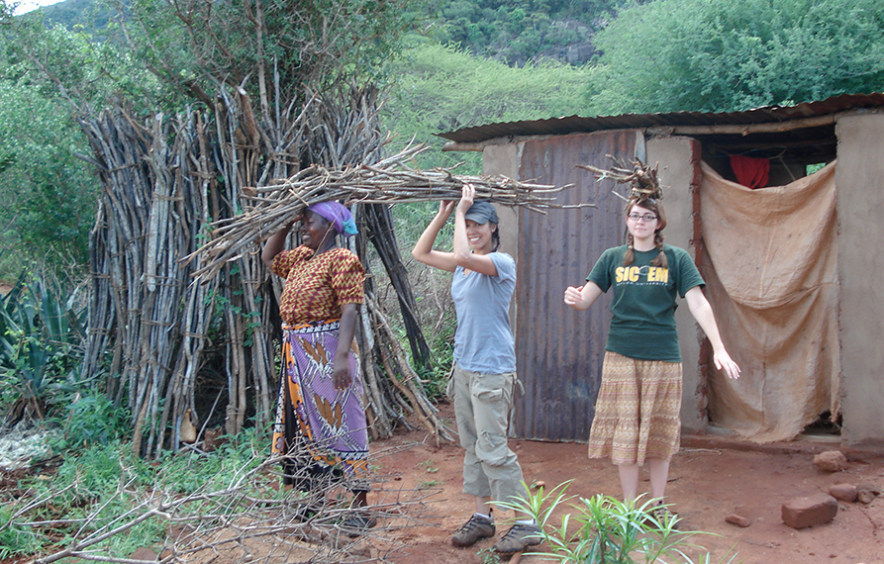
Kenya
Social Work in Kenya: Context, Empowerment and Sustainability
Offered in collaboration with the Africa Network for Animal Welfare, this course introduces students to the concept of One Health and the social, political, economic, cultural, geographic and conservation issues of Kenya and East Africa. This course is field based with strong emphasis on experiential learning and direct experiences.
Through the development of an integrated social science and ecocentric understanding of one’s place in the natural environment and a paradigm that acknowledges the interdependence and interconnection between humans and the more-than-human world, social workers practicing locally and globally can contribute to effective, strengths-based solutions to address the crises and issues facing our world. Local issues and community-based efforts that strive for socioenvironmental justice are highlighted to promote critical thinking around One Health, biodiversity protection, environmental awareness, land use, water use and the delicate balance of humane treatment and care of human and non-human animal communities.
PLEASE NOTE: This course is on hold until further notice.
-
About Kenya
In this course, you'll participate in an immersion experience that offers opportunities to participate in several communities in central and southern Kenya, where you'll explore the wonders of East African ecological systems. With our program partners, The African Network for Animal Welfare, we will live and learn from our mobile field camps as we meet numerous communities. We will examine the concept of One Health in person, looking at ourselves and our own communities and the then taking these observations into an explorative journey and study of the biodiversity of Kenya.
-
Course Planning
- PLEASE NOTE: This course is on hold until further notice.
- SOWK 4758: Social Work in Kenya — Context, Empowerment and Sustainability
- Coursework in fall quarter
- 3 virtual class dates TBD
-
Learning Projects
- Anti-poaching and de-snaring wire traps to reduce animal suffering
- Interacting and teaching/learning in local communities
- Working directly with wildlife guardian rangers
- Community building, environmental conservation and sustainable practices.
- Working with displaced persons and communities
- Meet and work with women conservation leaders and community leaders
- Learning about the political and governance issues facing Kenya
- Protection of animals with Africa Network for Animal Welfare
- Trauma recovery effort for orphaned elephants
- Home visits in a rural community and Kibera’s urban slum with KGSA academy
- Problem solving human-animal conflict issues
- Visit the world’s greatest wildlife parks (Tsavo East and West)
